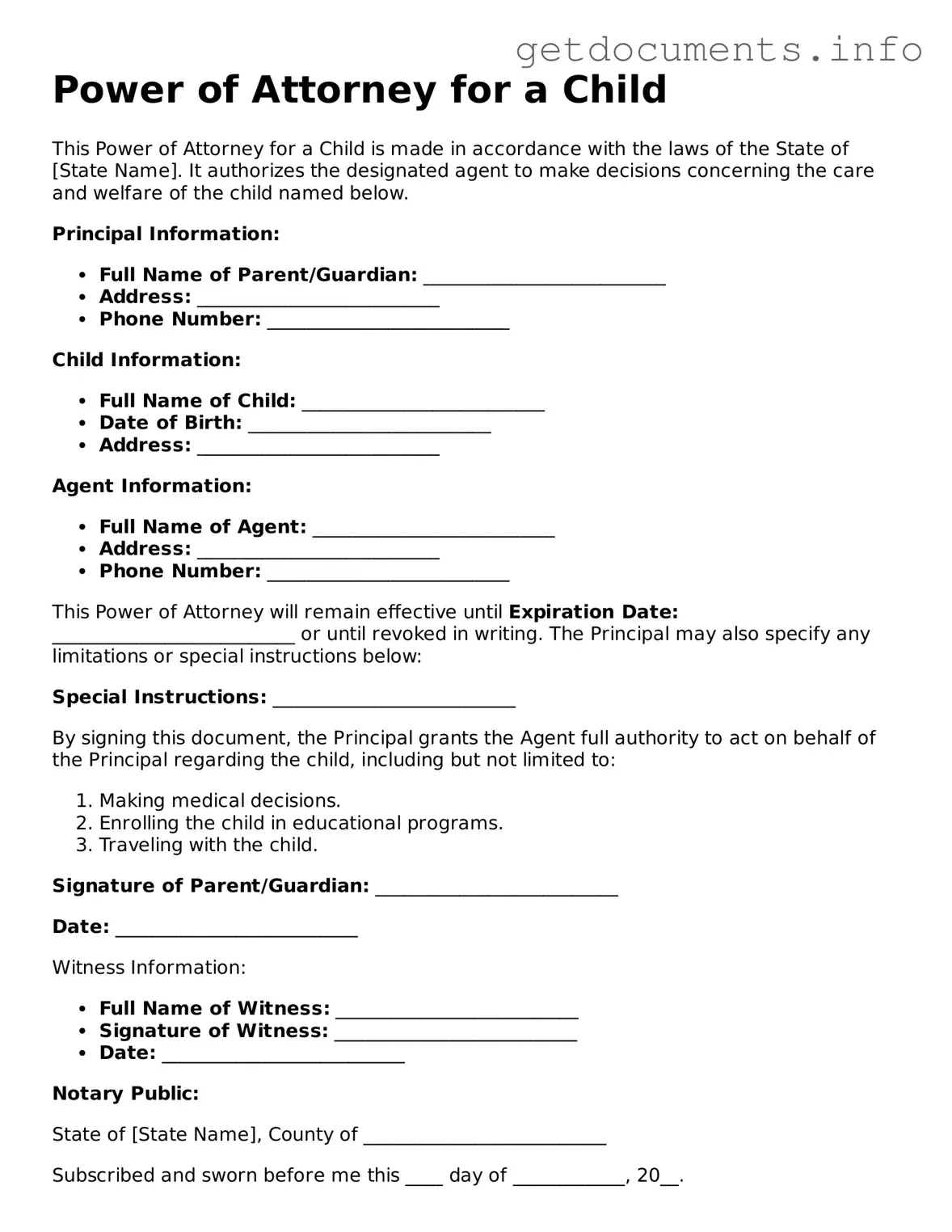Printable Power of Attorney for a Child Document
The Power of Attorney for a Child form is a legal document that allows a parent or guardian to designate another adult to make decisions on behalf of their child. This can include matters related to health care, education, and general welfare. Understanding this form is crucial for ensuring that your child’s needs are met when you are unable to be present.
Ready to take the next step? Fill out the form by clicking the button below.
Access Power of Attorney for a Child Editor

Printable Power of Attorney for a Child Document
Access Power of Attorney for a Child Editor
Got places to be? Complete the form fast
Fill out Power of Attorney for a Child online and avoid printing or scanning.
Access Power of Attorney for a Child Editor
or
⇩ PDF File
